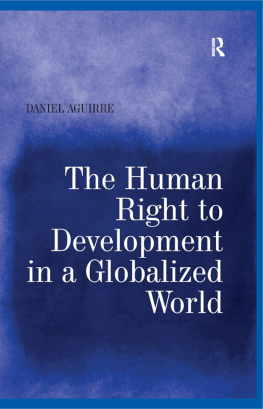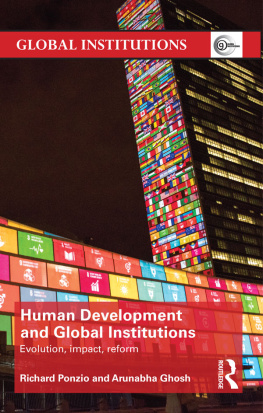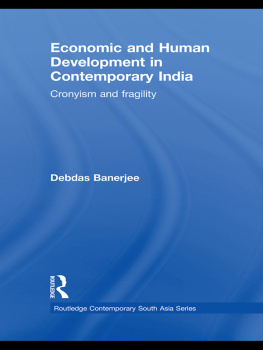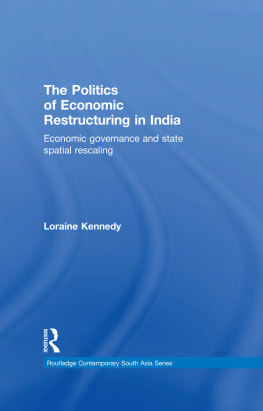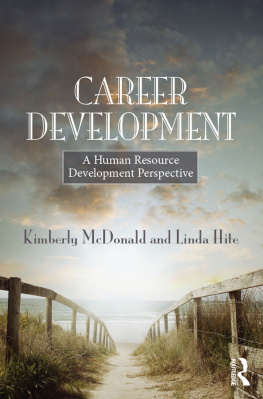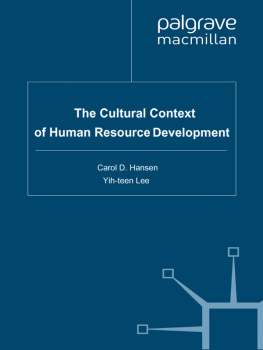ECONOMIC RESTRUCTURING AND HUMAN RESOURCE DEVELOPMENT
It is not the strongest of the species that survive , nor the most intelligent, but the ones most responsive to change.
Charles Darwin
Economic Restructuring and Human Resource Development
Marcus Powell
First published 2003 by Ashgate Publishing
Reissued 2018 by Routledge
2 Park Square, Milton Park, Abingdon, Oxon OX14 4RN
711 Third Avenue, New York, NY 10017, USA
Routledge is an imprint of the Taylor & Francis Group, an informa business
Copyright Marcus Powell 2003
All rights reserved. No part of this book may be reprinted or reproduced or utilised in any form or by any electronic, mechanical, or other means, now known or hereafter invented, including photocopying and recording, or in any information storage or retrieval system, without permission in writing from the publishers.
Notice:
Product or corporate names may be trademarks or registered trademarks, and are used only for identification and explanation without intent to infringe.
Publishers Note
The publisher has gone to great lengths to ensure the quality of this reprint but points out that some imperfections in the original copies may be apparent.
Disclaimer
The publisher has made every effort to trace copyright holders and welcomes correspondence from those they have been unable to contact.
A Library of Congress record exists under LC control number: 2003041919
ISBN 13: 978-1-138-71974-3 (hbk)
ISBN 13: 978-1-315-19410-3 (ebk)
A number of people have helped in the production of the present study. I would like to thank Dr. M. Black at Leicester University for providing me with material for use in the Canadian and American chapters, as well as her valuable comments on earlier drafts. A number of my post graduate students at the University of Leicester, especially Mr. J. Francois, Ms. C. Millington and Ms. M. Jordan, are to be thanked for allowing me to use some of their primary research material in the Caribbean chapter. I would also like to thank a number of fellow colleagues at the Department of Labor, in South Africa, for giving me editorial comments on the final draft, including Mr. A. Maloney and Dr. T. Sparreboom. Finally, thanks also go to Mr. S. Johnson from Leeds Metropolitan University for his suggestions on the introductory and concluding chapters.
Chapter 1
Introduction
Over the last two decades numerous studies have investigated the relationship between human resource development and globalization. The interest stems from a concern by governments over how they can manage change and what role education and training policies can play in this process. A number of drivers are accelerating the process of globalization including: changes in investment flows, liberalization of markets, legislative reforms, the formation of new trading agreements, rapid innovations in technology and the introduction of new working practices (Bird, 2002). As a result of globalization some countries have experienced accelerated growth and rising employment levels, whilst in others technological advancement and competition results in instability and declining employment opportunities. The type of policies implemented by a government can determine whether an economy reacts positively or negatively to change. Even the type of education policies adopted by a government can influence whether a country benefits or not, from economic restructuring. Nevertheless, it is more important than ever that a country has a defined economic policy and that state institutions are committed to implementing such a policy. Equally significant is the degree of alignment between a country's development strategy and their education and training policies. There is no point in developing an elaborate human resource development strategy if appropriate state institutions within a country do not have an economic plan, or understand what future direction their economy is moving. A further related issue concerns the role played by social partners and the degree to which they participate in decisions about policy (Mitchell, 1998).
The present study is the culmination of three years research into the relationship between economic restructuring and human resource development (HRD) in the American and Caribbean region. The book draws on the academic and practical experience of the author who has lectured on this subject and undertaken consultancy work in the region. This enabled the study to recognise how debates about human resource development have changed over the past three decades, as well as their practical implications for policy. In the 1960s and 1970s policy debates surrounding education and training focused on human capital theory and how countries could identify the precise nature of their human resource requirement using complex manpower planning models. However, manpower planning became discredited because it was unable to account for unexpected change, including the impact of new technology and demographic influences, especially migration and the rising incidence of HIV/Aids. The failure of manpower planning resulted in analysts using labor market analysis as a tool for determining their country's education and training needs. The philosophy underpinning this approach is that any departure from competitive labor markets will discourage training, reduce employment and retard economic growth. However, the labor market analysis approach is not without critics, the majority of whom argue that in order to understand the process of skill formation you must take into account the political conditions necessary for skill development. Much of the work on this subject has been based on the experiences of the South East Asia tiger economies and researchers have asked what role the developmental state has played (see Ashton et al, 1996). While the developmental state model may have overcome a gap in the literature it has not helped us fully understand the process of skill formation in developing countries where external agents continue to have a significant influence. In response to this deficit other international academics have constructed the dependent state model to account for how external agents influence skill formation in the developing world (see: Arnove et al 1996; Green, 1995). All of these theories have influenced the concepts and debates used in the present study.
Economic restructuring has resulted in similar development trajectories being followed by developing and developed economies (OECD, 1996). Some developing countries are moving in the direction of the knowledge economy, characterized by the use of advanced level technology and demands for higher skilled occupations. Whilst, parts of the industrialized or developed world can be characterized by de-industrialization and unemployment, as manufacturing plants close down and relocate to different parts of the developing world (Betcherman 1998). A number of reports by international agencies have also pointed to the growing income disparities between poorer and richer nations (UN, 2000). European policies have attempted to raise the living standards of poorer members and harmonies income levels across different countries in the region, including those aspiring to join the European Union (Mitchell, 1998). The relative success of these measures can be seen by the fact that three decades ago Ireland and Greece were the poorest countries in Europe, now their economies have some of the highest growth rates in the Union. There have been a vast number of studies which attempt to analyze how education and training policies in the European Union are contributing towards productivity and growth. This research has been made possible by European Union funding under initiatives such as Socrates, Leonardo and more recently "Improving the Socio-Economic base".




